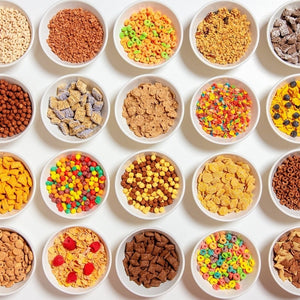FAQs About Organic Wine Brands
Do clean wine brands use dry farming?
Dry farming means growing grapes without the use of irrigation. The practice saves 16,000 gallons of water per acre per year because it relies on natural rainfall. Dry farming also results in better-tasting grapes and therefore richer tasting wines. Unfortunately, fewer than 1% of American vineyards grow grapes via dry farming.
Does Dry Farm organic wine taste good?
For me, the best part about Dry Farm Wines might be just how delish these wines are. I usually get the mixed delivery, which includes two reds, a white, a rose, a sparkling rose, and a sparkling white wine.
I wouldn’t call myself a wine snob, but I am relatively picky and truly every single bottle has been. No wine is too sweet, or felt burny on the throat. Every wine is super easy to drink (for better or worse!).
I have not tried as many of the Maker Wines, but I recently got a 6-pack of sparkling roses and whites, and they were all crisp, light, and delicious. I am excited to try more!
Are these organic wine brands really hangover-free?
I can’t speak for other organic wines, but I’ve never had a hangover from any Dry Farm wines or Maker wines.
I haven’t guzzled an entire bottle to test this theory, but I tend to get hangovers easily — especially from red wine. It seems that Dry Farm allows me to enjoy the best organic red wines, without the hangover.
This makes sense since Dry Farm wines have less sugar and less alcohol than conventional wines. I can have that extra glass without feeling extra tipsy. The lack of preservatives, artificial colors, added sulfites, and mold may also help.
Is it worth buying organic wine?
Every bottle of Dry Farm Wine is between $29 and $39 a bottle, depending on whether you subscribe or order a single box. This price includes shipment, and this link will get you an extra bottle for a penny.
Maker Wine is nice because you get the convenience of single servings. Each case includes 6 cans (which equals 2 bottles) and ranges from $48 to $78, depending on the type of wine. That works out to roughly $24 to $39 a bottle. To save, use this link to get an extra 15% off.
I’m no sommelier, but all of these wines taste like they cost more than $30 a bottle. For that reason, I’m okay with the cost.
Avaline bottles cost start at just $20 with a subscription, making this the most affordable organic wine brand we’ve found. You can save 15% with code GOODSTUFF.
Is drinking organic wine a healthful habit?
This is a tough question to answer. My take is that if you don’t drink, don’t start in an effort to become healthier. Most studies show that alcohol is not good for you in any amount. (I love Emily Oster’s take on this, though.)
If you do drink, I probably don’t need to remind you that while some wine consumption is maybe okay, too much is decidedly bad. There may be some benefits to light drinking, which include:
- Lowered risk of heart disease, thanks to increased levels of “good cholesterol” from drinking wine, especially red wine.
- Aging more slowly. Procyanidins found in red wine may be responsible for the longer life spans of people living in the Mediterranean. Procynaidns may even reduce wrinkles. Red wines produced the traditional way have the highest levels of procyanidins.
- Improved brain function. Studies also show that moderate drinkers have a slower decline in brain function than those who abstain from alcohol.
- Increased life expectancy. Studies also show that wine drinkers typically live longer than beer or hard liquor drinkers.
- Better mental health. At least one study has shown that those who drink up to seven glasses of wine each week are less likely to suffer from depression than those who don’t drink.
How to can I find affordable organic wine brands?
Honestly, clean wines have kind of ruined me for any other kind! The food I buy is more expensive than “normal” food, so I’m comfortable with spending more on wine, too. I’m just drinking much less of it.
That said, if the brands I recommended here aren’t within your budget, you can:
- Look for the USDA organic label on the bottle. This means the wine is made from organically grown grapes, but it does not mean the wine won’t contain other problematic additives.
- Ask the staff at your local Whole Foods, or even a good wine store, to point you to the organic or biodynamic wines. Some wines won’t be labeled.
- When in doubt, choose wines from France, Switzerland, and Austria. European wines are more likely to be organic and dry-farmed.
Please comment below with other healthy, organic wine brands you’ve found!
Stay sane, and cheers!






17 comments
Margarita
They do seem to add sulfites to every bottle I’ve gotten from them so far…and also curious about the organic bit?
Gail Bayer
Was there any followup on the above organic wines and chemicals…
Suzanne Weaver-Goss
I think Frey is a good choice to buy in the wine store because it’s organic. However, I don’t find it to be very good, as far as taste goes. And there is the issue with US wines all having glyphosate (Round UP) which is used profusely all over the US.
Susan
What did Frey respond to you? I see that wine locally and it is cost effective.
Grace
I would be curious to know about this as well- although on their FAQ they claim they do not use “synthetic pesticides” and “non-organic chemicals”, they don’t seem to claim to actually be an organic wine? Although my multiple neighbors who are now selling it tell me otherwise!
Grace